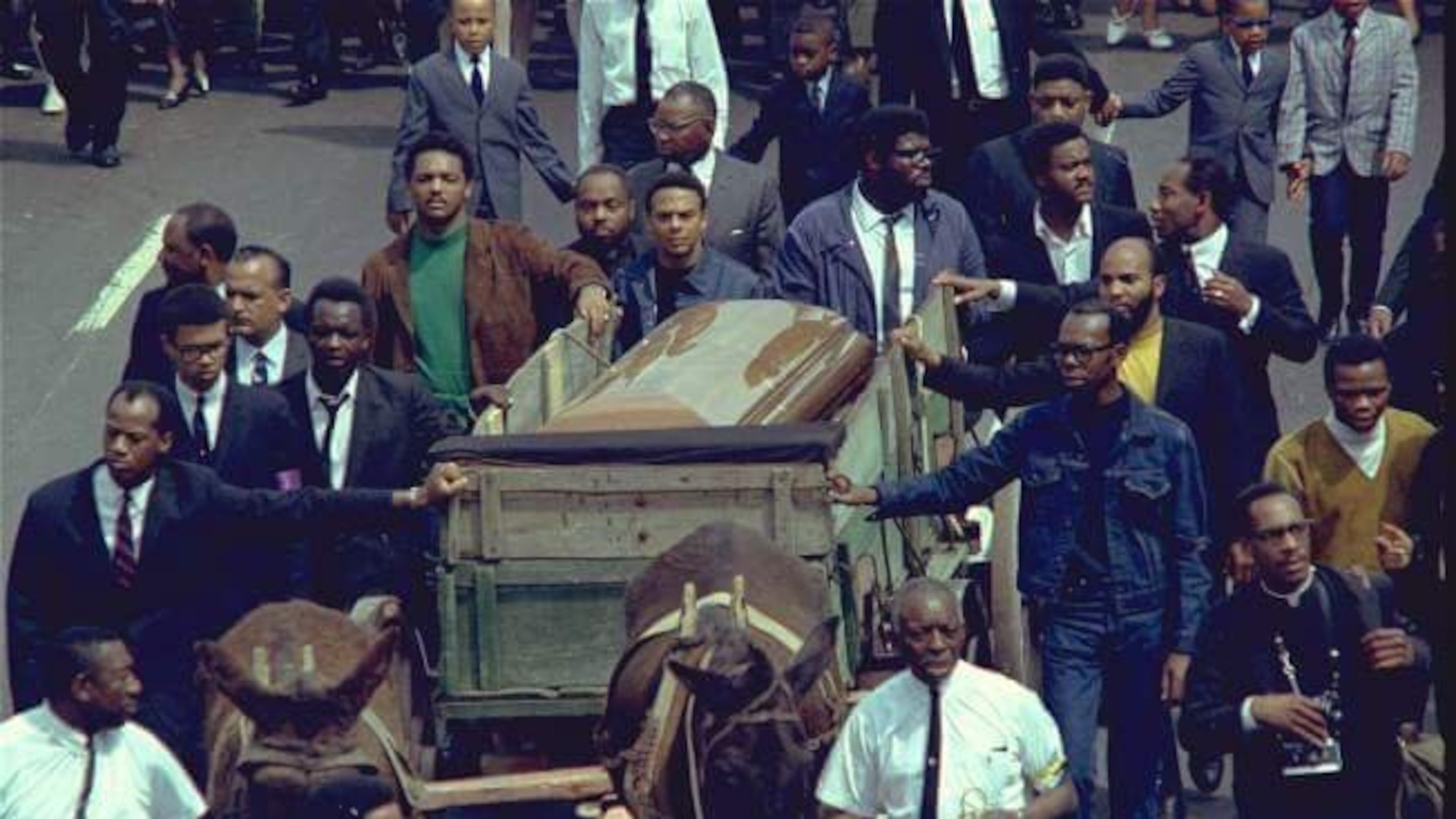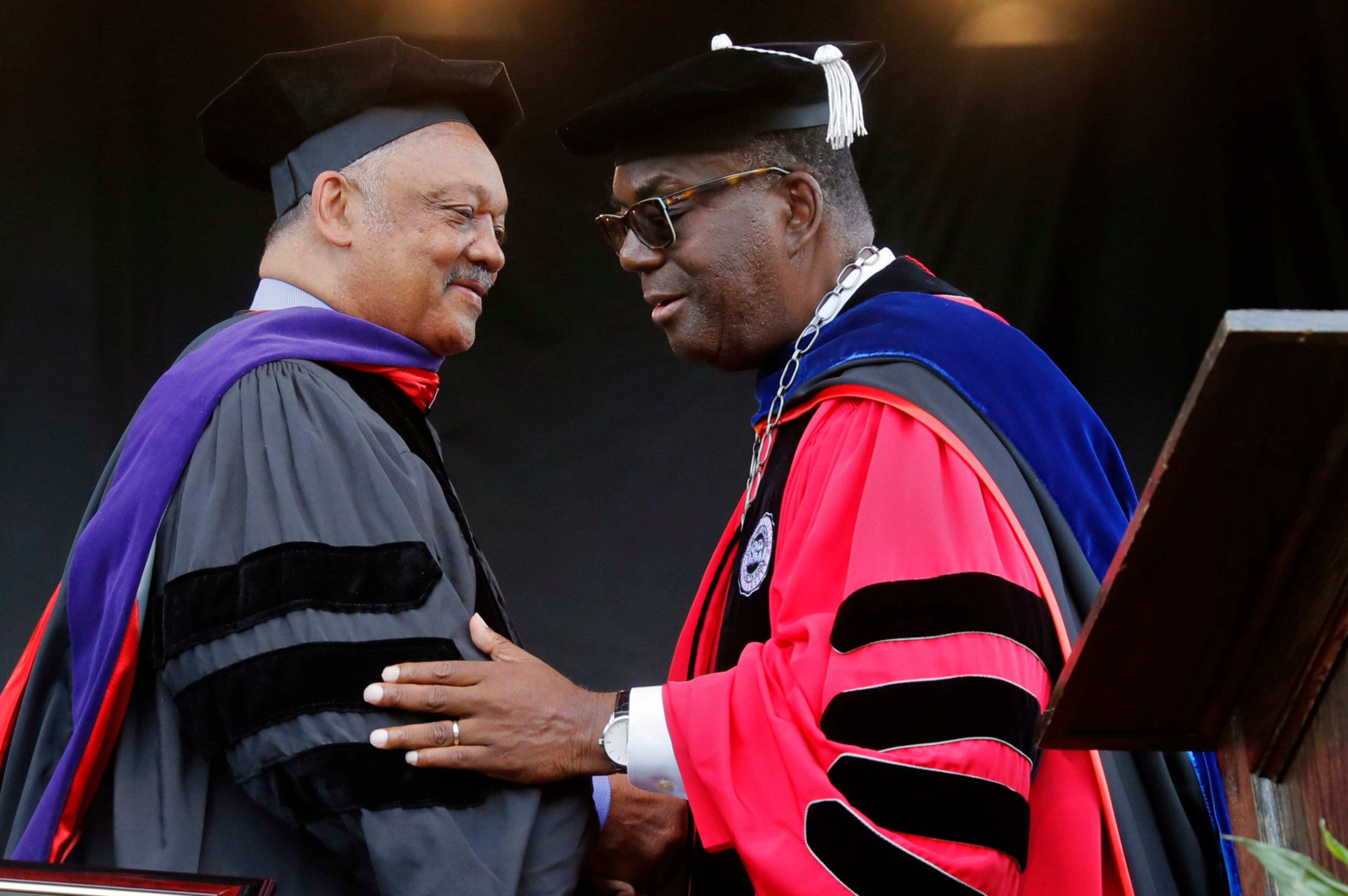Opinion: Following MLK’s casket 50 years ago set him on better path

Michael H. Popkin is founder and president of the Atlanta-based Active Parenting Publishers. He is a former child and family therapist.
In this piece, the Atlanta native describes the impact the Rev. Martin Luther King had on him and his philosophy on parenting.
By Michael H. Popkin
I never met Dr. Martin Luther King, Jr. even though I grew up in Atlanta in the 1950’s and 60’s. To be honest, the first time I truly realized what a great man he was happened 50 years ago today when he was assassinated. A few days later some classmates from Northside High and I decided to join thousands of others as we marched behind the mule-drawn wagon that carried his body down the streets of Peachtree to the cemetery.
Just shy of my 18th birthday, the experience opened my eyes to a lot of things my liberal, yet sheltered, upbringing on the mostly white side of Atlanta never could. Arm and arm we had walked, black and white, singing the songs of the civil rights movement with strangers united by a man’s dream “that one day little black boys and girls will be holding hands with little white boys and girls.” We were already being transformed by his vision for America.
Three years later I volunteered to run the waterfront at a summer camp inspired by his dream. Called Camping Unlimited, it had been founded by my father and uncle as an experiment in group living where children of all races, religions, and incomes could live together for two weeks in harmony in the mountains of North Carolina.
The program was supported by many forward-thinking Southerners, including Andrew Young, Ralph Abernathy, and Dr. King’s widow Coretta Scott King, who sent three of her four children to camp: Bunny, a vivacious 7-year-old (now Rev. Bernice King), Martin Luther King III, the serious older brother of Dexter King, the playful younger brother.
Dexter mesmerized his cabin-mates, as well as a couple of us counselors who, while making our rounds after lights-out, paused by the screened windows of his cabin to hear his oratorical gifts at work. The rhythm and cadence were so similar to his legendary father one could almost believe he was channeling a spirit, if it were not for the content which was clearly 8-year-old camper talk.
When the Washington Post announced they were coming to camp to do a story, I was called to the phone to speak to one of the camper’s mothers who had been told of the upcoming visit. When I learned the caller was Mrs. King, it was all I could do to stammer, “Yes, ma’am” when she explained to me that although she appreciated what we were doing, she wanted us to carry out her wishes to protect her children from the media until they were adults. “Yes, ma’am.”
Not only did we keep the Post away from the King children, we also honored her late husband’s dream in another way: “I have a dream that my four little children will one day live in a nation where they will not be judged by the color of their skin, but by the content of their character.” Actually, we tried not to judge any of the kids at camp at all. Nor did we need to since, given a healthy, engaging environment with respectful adult supervision, kids from all kinds of backgrounds tend to thrive.
Dr. and Mrs. King influenced me subtly in other ways. When, as a young psychologist, I had the idea to develop the first video-based parenting education program I realized that people would compare it to what they saw on TV. The quality would have to be high. This was in 1983 when most of the TV programs were based around white families. So, all three families we used to demonstrate parenting styles and skills would normally have been white. Except that there was no way that I was going to have to even imagine explaining that to Mrs. King or her then grown children. I knew better, so I did better. In later programs we also added Hispanic and Asian families, and one Native American boy, as well.
Dr. King’s words about being judged on the content of one’s character, not race, had an impact on my writing. While parenting and parent education are often about behavior, and sometimes about attitudes and feelings, our programs also emphasized the underlying foundation upon which those things are built: Character. That’s why we emphasize parenting in a way that builds responsibility, cooperation, self-esteem, courage, and most of all, mutual respect.
To say that Dr. King’s life exemplified these traits would be an understatement. Great leadership requires one to talk the talk AND walk the walk. I may have walked far behind that old mule-drawn wagon 50 years ago, but I’m pretty sure he helped set me on the right path.



